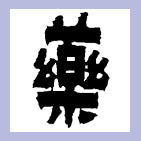Yin Deficiency (Yin Xu) in Traditional Chinese Medicine (TCM)
Yin deficiency is a pathological concept in Traditional Chinese Medicine (TCM), referring to the depletion of body fluids and nourishing substances, which fail to regulate yang, leading to a relative excess of yang and a series of symptoms of virtual heat. The following is a detailed explanation of yin deficiency:
I. Definition and Causes of Yin Deficiency
- Definition: Yin deficiency refers to the pathological phenomenon of depletion of jing (essence) and fluid. Since jing and fluid both belong to yin, it is called yin deficiency.
-
Causes:
- Inborn constitutional deficiency: Some individuals are born with a weaker constitution and insufficient yin essence, prone to yin deficiency symptoms.
- Long-term emotional suppression: Negative emotions such as anxiety and worry consume the body's yin essence, leading to yin deficiency.
- Overexertion: Long-term physical and mental exertion, busy work schedules, and stress can deplete the body's yin essence.
- Poor long-term dietary habits: Irregular eating patterns, a preference for spicy and stimulating foods, overeating, etc., may damage the spleen and stomach, disrupting their function and affecting the body's yin-yang balance.
- Inappropriate lifestyle habits: Such as staying up late frequently, irregular sleep schedules, excessive sexual activity, etc., may consume the body's yin essence, leading to yin deficiency.
II. Symptoms of Yin Deficiency
Symptoms of yin deficiency include a slender body build, dry mouth and throat, red cheeks, restless feeling in the palms, soles, and chest, hot flashes with sweating at night, dark yellow urine, dry and hard stool, red tongue with little coating, and thin and rapid pulse. Additionally, depending on the viscera involved, the following symptoms may also occur:
- Heart Yin Deficiency: Often accompanied by restlessness, palpitations, and insomnia.
- Lung Yin Deficiency: Manifested as dry cough with little or sticky sputum, difficulty expectorating, or blood-streaked sputum, hoarseness, etc.
- Stomach Yin Deficiency: Characterized by discomfort in the epigastric region, hunger without appetite or abdominal distension and dull pain, nausea, hiccups, etc.
- Liver Yin Deficiency: Besides common yin deficiency symptoms, there may also be dizziness, blurred vision, dry eyes, decreased vision, or dull pain in the rib-side area.
- Kidney Yin Deficiency: Manifested as soreness and weakness in the waist and knees, dizziness and tinnitus, loose teeth, easy arousal and premature ejaculation in men, scanty or absent menstruation, and metrorrhagia in women.
III. Treatment Methods for Yin Deficiency
The main methods for treating yin deficiency include nourishing yin and reducing fire, clearing heat and nourishing yin, and adjusting lifestyle. Specifically:
- Chinese Herbal Medicine: Using herbs such as rehmannia root, ophiopogon root, dendrobium, and lily bulb to nourish yin and moisten dryness.
- Dietary Therapy: Eating foods rich in moisture and nutrients, such as pears, tremella, lily bulb, and honey, helps replenish the body's yin fluids.
- Chinese Patent Medicines: Such as Liuwei Dihuang Pill and Zhibai Dihuang Pill, which have good effects on nourishing yin and clearing heat, but should be used under medical guidance.
- Acupuncture Therapy: Acupuncture at specific acupuncture points can regulate the body's yin-yang balance and alleviate yin deficiency symptoms.
- Regular Sleep: Maintaining sufficient sleep and avoiding staying up late, as staying up late can exacerbate yin deficiency symptoms.
- Moderate Exercise: Engaging in appropriate aerobic exercises such as Tai Chi and Yoga can relieve stress and improve immune function.
- Emotion Management: Keeping a happy mood and avoiding excessive emotional fluctuations are also crucial for the regulation of yin deficiency.
In summary, yin deficiency is an important concept in TCM with diverse causes, complex symptoms, and treatment methods that require comprehensive consideration of individual constitution and symptoms. Through reasonable treatment and lifestyle adjustments, yin deficiency symptoms can be effectively alleviated, improving overall health.
